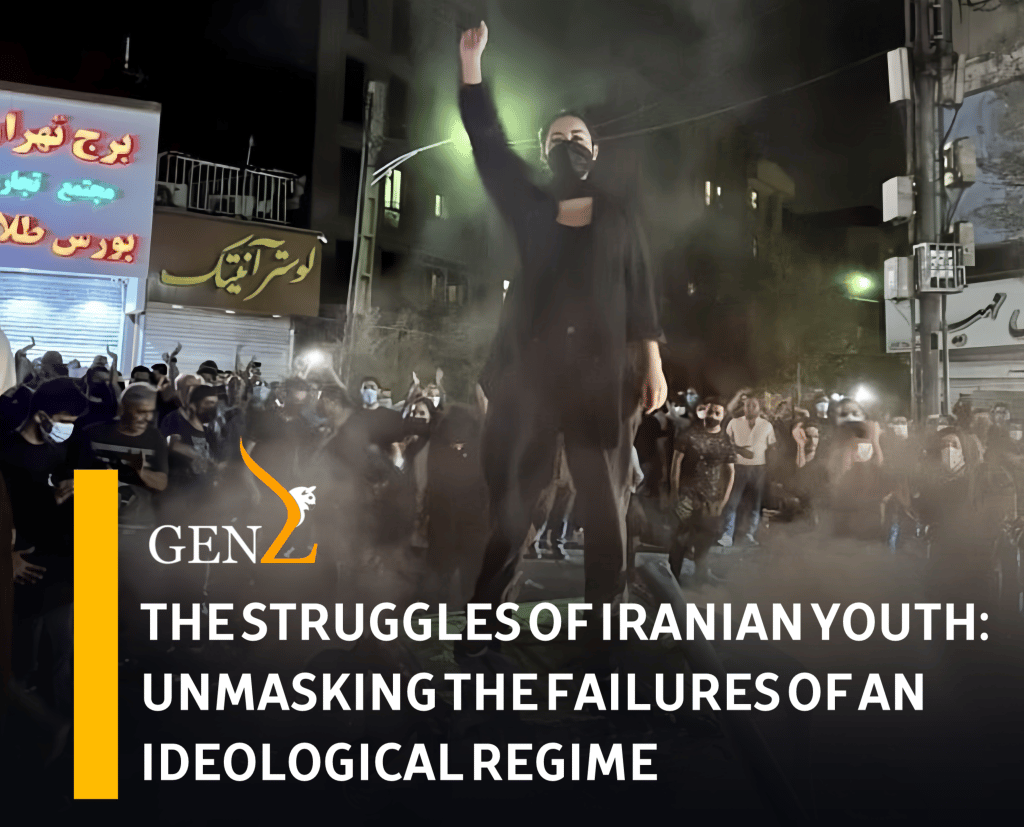The Struggles of Iranian Youth: Unmasking the Failures of an Ideological Regime
The current issues facing Iranian youth and society cannot be explained away with overused andconventional sociological studies. These studies are red herrings, diverting attention from thedeeper structural and ideological roots of the problems. This is in fact due to the direct result of the Islamic Republic’s chokehold that we have witnessedproblems that do not align…
8/25/20252 min read


The current issues facing Iranian youth and society cannot be explained away with overused and
conventional sociological studies. These studies are red herrings, diverting attention from the
deeper structural and ideological roots of the problems.
This is in fact due to the direct result of the Islamic Republic’s chokehold that we have witnessed
problems that do not align with the norms and standards of the free world. In other words, the
primary source of these problems lies with totalitarian and theocratic regimes, which are rarely
scrutinized in the fast-paced world of politics!
Under such regimes, the fields of Humanities and Sociology lose their impartiality and balanced
perspective, transforming into tools of justification and mere shadows of their former selves.
The most crucial question now is: Within this theocratic system, how can one conduct an
unbiased and impartial study and write an article on such topics?
It is no surprise that the studies conducted by the Islamic Republic are not only stereotypically
bland and puzzling but also identical and repetitive in nature.
For instance, these are only some of the issues facing Iranian youth according to domestic media:
● The absence of efficient political institiutions for youth
● Economic challenges
● An unprecedented increase in divorce rates
● Rising smoking rates among young women and girls
● “White marriage” and its consequences
… and more
All of these domestic and even international issues can be traced back to the disastrous and
ideological foreign policy decisions, which the regime blames Western-imposed economic
sanctions, using them as a scapegoat for the existing economic challenges.
But in the meantime, a glaring event has occurred, and for years there was no mention of it in the
regime’s press and official research. Recently, it has been briefly referred to as the “generational
gap,” which is the “change in the cultural paradigms” of the youth.
The regime and its propagandists, inside and outside of Iran, try very hard to portray the
problems of Iranian society as economic and pro-freedom protests as riots and a threat to
national security. Amdist facing Western public opinion, they also try to make these protests
seem basic and economic in nature!
But what justifications do young people have when facing changes in cultural paradigms?
This is the regime’s Achilles’ heel. In other words, if it were to genuinely engage with the
changing cultural paradigms and social norms of today’s young people, known to sociologists as
Generation Z, it would be tantamount to admitting the failure of its essential ideological tenets.
Today’s young generation have become very conscious of their rights and, just like an infant, are
veering towards their national identity demanding a normal life away from ideological and
archaic thoughts!
And the flood of Iranian youth emigrating to Western countries is itself a solid proof of this
matter.
At present, the general desires of a young Iranian would include the following:
The right to social and political freedoms, which include freedom of speech, the freedom
to choose personal clothing, and the right to participate in political processes in a fair and
equal electoral process.A strong economy and a fair income similar to other normal countries in the world.
Establishing unencumbered political and economic interactions between Iran and all
nations globally.
It is in the best interests of Western politicians to recognize that the desires of Iranian young
people, like their peers in free and advanced countries, go much beyond economic conditions.
In the final analysis, our key demand from pragmatic Western politicians is to recognize the fact
that this ideological, repressive, and totalitarian regime, which has completely lost its credibility
among the Iranian people, especially the new generation, and has officially undergone a
fundamental collapse in social, economic, and political terms, has nothing left to offer!
This regime is openly a losing horse in the field and it is no longer worth investing in.
